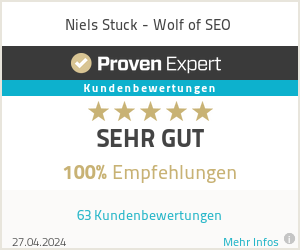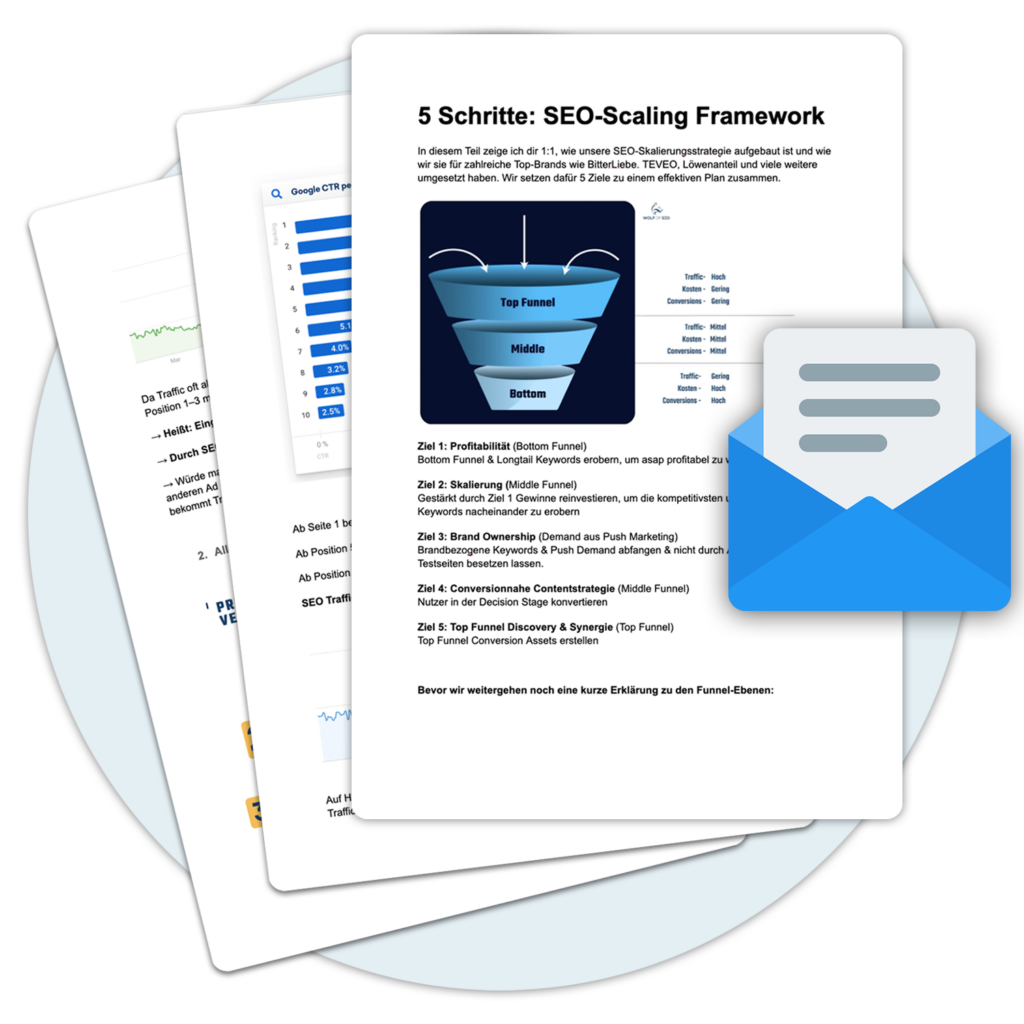Open Directory Project - An overview
The Open Directory Project (ODP), also known as the DMOZ after his domain name dmoz.org, played a central role in the organization of the World Wide Web through human curation. As one of the largest and most comprehensive Directories The first of its kind, it was launched in 1998 - a time when the digital world was still in its infancy. The basic idea behind DMOZ was simple but ambitious: to create a comprehensive, publicly accessible database that categorizes web content and thus simplifies access to information for users.
Basic principles and structure
A special feature of the Open Directory Project was its non-commercial orientation. In contrast to other web directories, which may have emphasized financial interests, the ODP focused on providing ad-free and unbiased access to the collection of web links. This allowed for editorial independence, which improved the quality and Relevance of the listed pages.
Only volunteers, so-called editors, from all over the world were responsible for the review and entry process. They were tasked with reviewing, categorizing and managing entries. The principle of volunteerism was deeply rooted in the core of the project and formed the backbone of the community, which DMOZ and cultivated.
Relevance for search engine optimization
In the early days of the Internet, an entry in the Open Directory Project as a kind of seal of approval. Websites that managed to be accepted by the editors were not only able to be recognized directly via DMOZ The results were not only in terms of traffic, but also in terms of visibility in search engines. Google in particular, then as now the dominant player among search engines, used the descriptions of DMOZ for your own Search results and thus lent additional authority to the pages listed there. This practice made DMOZ an important tool in the early days of the Search engine optimization.
Alignment and multilingualism
DMOZ differed from other web directories not only in its non-commercial orientation and the commitment of the volunteer editors. One of the most ambitious goals of the project was to provide a comprehensive directory that was not limited by language barriers. Thus DMOZ was available in more than 60 languages, making it a truly global project. The idea was to offer every Internet user, regardless of language and origin, access to structured and verified knowledge.
The hierarchical structure of the directory, organized into categories and subcategories, allowed for an easily navigable and intuitive search. This form of organization provided both simplicity and depth in the presentation of web content and ensured that users could find relevant information efficiently.
During the years in which it was active, the Open Directory Project significantly influenced the Internet landscape. Through its efforts to create a directory independent of commercial interests and its focus on the community and the volunteer work of editors, it set standards for the categorization and evaluation of web content. Even though the project was eventually discontinued, its legacy remains as a major capiin the history of the Internet.
History and development
In 1998, the digital universe took a decisive turn with the founding of the Open Directory Project, also known as the DMOZ. Originally launched as Gnuhoo, the project was born from the idea of creating a comprehensive, human-curated database of websites that would be free from commercial influence and set against the then increasingly dominant commercial web. Founded by Rich Skrenta and Bob Truel, it marked the beginning of a new era of web cataloging.
From Gnuhoo to DMOZ
Not long after it was founded, the project was renamed NewHoo and shortly afterwards acquired by Netscape, which integrated it into the Open Directory Project renamed. This renaming symbolized the transition from a small initiative to a globally recognized directory-leading giant. With Netscape's support DMOZ quickly, both in terms of the number of entries and in the number of volunteer editors committed to the project worldwide. It was this community of editors that formed the backbone of the ODP and cemented its reputation as a trusted source of information.
Expansion and challenges
Over time, the DMOZ continuously its Range and became a multilingual directory with entries in over 60 languages. This expansion was not without its challenges, as the rapid growth of the internet and the constant evolution of digital content meant that the timeliness and Relevance of the directory. Despite these challenges, the Open Directory Project a crucial tool for users looking for structured and verified information, as well as for search engines looking for the information provided by DMOZ curated descriptions to improve their Search results used.
The unexpected end
However, the story of the Open Directory Project took an unexpected turn on March 17, 2017, when AOL, at the time the operator of DMOZannounced the end of the project. This decision hit both users and the community of volunteer editors, who had tirelessly contributed to the maintenance and expansion of the directory, hard. According to the official statement DMOZ could no longer cope with the rapid changes of the Internet and the associated requirements. Despite the closure and the challenges that led to this decision, the DMOZ an unforgettable symbol of a time when the Internet was organized and categorized by a community of enthusiasts who made it their mission to make information free and accessible.
Overall, the Open Directory Project a complex legacy. Its history reflects the dynamics of the internet, testifies to the challenges of content management on a global scale and underlines the value of human curation in the digital era. Although DMOZ no longer exists in its original form, its spirit lives on in the memory of the efforts and contributions of thousands of volunteers who worked unpaid and with great dedication to make the web a little clearer and more accessible.
The end of DMOZ and the consequences
On March 17, 2017, the digital world reached a significant turning point: AOL, the operator of the Open Directory Project at the time, unexpectedly announced the closure of DMOZ known. This move marked the end of an era that lasted almost two decades and during which the project was considered one of the largest and most influential in the world. Web catalogs served. But what followed this surprising decision, and what impact did the end of DMOZ to the online world?
Immediate reactions and adjustments
The announcement hit the community of volunteer editors, who DMOZ The fact that the people who had cared for them for years with great dedication and without financial reward came out of nowhere and triggered a wave of shock and disbelief. Many suddenly saw their years of work and commitment devalued. At the same time Webmaster and SEO experts who DMOZ as an important resource for visibility and the Ranking quickly adapt to the new reality. The direct effects of the discontinuation of DMOZ were particularly noticeable in search engine optimization (SEO), since Backlinks from the directory and the use of its data by search engines such as Google were considered relevant factors.
Long-term consequences for the web
In the long term, the end of DMOZ represented a significant turning point in the history of web cataloging. On the one hand, the end of the project highlighted the challenges faced by manually curated web catalogs. Directories in an age in which the volume and dynamism of online content is constantly increasing. Secondly, it stimulated discussions about the importance of human curation in the context of search engines and automated classification systems. Despite the end of DMOZ the idea of a human-maintained collection of websites remained and was continued in various follow-up projects and initiatives.
Initiatives and projects after the lockdown
After the closure of DMOZ various efforts were made to fill the gap left by the project. Some former editors shifted their activities to new platforms and forums to continue the vision of open and free access to web content. This included setting up mirror sites and discussing potential reboots or alternative Directories. Interestingly, AOL retained the rights to the domain dmoz.org, prompting speculation about a possible revival of the project under a different name. URL nourished. The German side dmoz.de, which refers to the German categories of dmoz.org, for example, announced that it would continue to be operated independently and on a voluntary basis. This shows that the spirit of DMOZ The Internet will live on even after its end and efforts to organize and categorize the Internet will not cease.
Overall, the end of DMOZ can be seen as a critical moment in digital history, highlighting the difficulties but also the necessity of manual curation work in the digital world. It symbolizes the ever-changing nature of the internet and the importance of communities and initiatives committed to free and open access to information. The implications of this event extend far beyond the immediate loss of a resource and concern issues of web architecture, freedom of information and the role of human contributions in the digital landscape.
Criticism and controversy
Despite its importance and its contribution to structuring the Internet, the Open Directory Project (DMOZ) has also been at the center of criticism and controversy over the years. These mainly related to the editorial processes, the power of the editors and transparency within the project.
Preference and disadvantage
One of the most frequently voiced complaints related to the alleged preferential treatment of certain websites by editors. There were allegations that editors gave higher priority to their own sites or the sites of friends, while competing listings had to wait a disproportionately long time for inclusion or were even rejected. These practices raised questions about the objectivity and impartiality of the directory and damaged the reputation of DMOZ as a neutral and fair platform.
Complexity and accessibility
Another point of criticism concerned the hierarchical structure of DMOZ themselves. Some users and Webmaster felt that the system was too complex and not user-friendly, especially when compared to alternative approaches such as folksonomies and tagging used in other online communities. These methods were seen as more intuitive and flexible and thus posed a direct challenge to the more traditional organizing principle of DMOZ dar.
Controversies surrounding ownership and management
Last but not least, the internal structures and decision-making processes also gave rise to discussion. Some former editors criticized the management of DMOZ for a lack of transparency and centralized control over certain aspects of the project. There were reports that crucial changes and policy adjustments were made without sufficient consultation with the editor community, leading to resentment and a feeling of lack of appreciation.
In addition, concerns were raised regarding the long-term sustainability of DMOZ out loud. In particular, reliance on volunteer work without financial reward seemed to be a risky model given the rapid growth of the internet and the challenges it posed. For many observers, AOL's decision to eventually shut down the project confirmed the limitations of such a system, although this closure also undermined the public and cultural value of DMOZ underlined.
Despite the criticism and controversy, it remains undeniable that DMOZ played a central role in the organization of the Internet for many years. It served as a guide for users and as an important resource for Webmaster and SEO expertn. The discussions and debates surrounding the project ultimately raise important questions about the best methods of online categorization, the role of curation in the digital age and the balance between voluntary participation and professional management. These questions are still relevant today, at a time of accelerating technological change, and encourage further reflection.
DMOZ in search engine optimization
In the context of search engine optimization (SEO), the Open Directory Project (DMOZ) represent a special resource. The influence that DMOZ on the evaluation and the Ranking of websites in the search results could hardly be overestimated. Recognition by this directory was long considered one of the secrets to significantly improving the visibility of a website in search engines.
DMOZ as a quality feature
Inclusion in the DMOZ-directory has been used by search engines, especially Google, as an indicator for the Relevance and trustworthiness of a website. Google used the descriptions from DMOZ not only for its own Google Directory, but also integrated some of this information directly into its Search results. Consequently, a listing in DMOZ This helped the page in question to be ranked higher in the organic search results. In addition, the presence in the DMOZThis allowed us to benefit from a large number of high-quality links - another factor that had a positive effect on SEO.
Loss of importance for SEO
Over time and with the advancing developments in search engine algorithms, the once undisputed importance of DMOZ for SEO began to wane, however. The algorithms became increasingly complex and took into account a wider range of signals in order to optimize the Relevance and quality of websites. Despite these shifts, an entry in DMOZ for many Webmaster and SEO experts, not least because of the symbolic value and prestige associated with the listing.
After the end of DMOZ
With the closure of DMOZ 2017 marked the end of an era in which directories played a crucial role in SEO strategies. The closure sparked discussions about the future importance of web directories for search engine optimization and the question of how websites can be optimized without this type of Backlinks can improve their visibility. Even if DMOZ no longer exists, the memory of its role in the early days of SEO remains and is a reminder of how much the landscape of search engine optimization has evolved in the meantime.
Overall, the history of DMOZ In the context of SEO, the constant evolution of the internet and the mechanisms used to find and evaluate content. While DMOZ In its heyday, it was a central point of contact for Webmaster to improve the visibility of their sites, its disappearance is a reminder that new challenges and opportunities are constantly emerging in the digital age. For SEO experts and Webmaster this means that they have to continuously look for new ways to Relevance and authority of their websites.
The role of the volunteer editors
The heart of the Open Directory Project (DMOZ) was undoubtedly the extensive community of volunteer editors. This group, consisting of thousands of individuals from all over the world, has set itself the task of organizing the web and providing users with access to high-quality information. Their role in the DMOZ was essential for the development, maintenance and quality assurance of the directory.
The commitment of the editors
The editors at DMOZ were primarily responsible for checking and categorizing websites. This work required not only a deep understanding of the thematic focus of the respective category, but also a high degree of diligence to ensure the quality and accuracy of the content. Relevance of the directory. Despite the challenges that this task entailed, the editors were characterized by a strong commitment and a high level of motivation to contribute to the common good of the Internet.
Challenges and overcoming them
Volunteer editors regularly faced challenges, particularly when assessing the suitability of websites for the directory. The decision on which sites to include was based on clear guidelines. However, room for interpretation was inevitable, which occasionally led to discussions within the community. Despite such challenges, the editors worked continuously to find constructive solutions while maintaining the integrity of the directory.
The end of DMOZ and the community's reaction
The unexpected closure of DMOZ in March 2017 came as a surprise to many editors and made their unpaid and time-consuming work seem obsolete in an instant. The decision to discontinue the project caused a wave of disappointment and regret within the editor community. Despite this abrupt end, the spirit of collaboration and shared commitment to an open and accessible Internet remained. Many editors looked for ways to continue their work in other projects or initiatives, demonstrating the ongoing desire to contribute to the global pool of knowledge.
Overall, the history of volunteer editors in the Open Directory Project the importance of altruistic efforts in the digital world. Without their dedication and commitment, the internet might be a less structured and accessible place. Even though DMOZ no longer exists as a platform, the legacy of the community and its members remains an inspiring example of collective altruism and engagement in the digital age.
Possible future and alternatives
With the closure of DMOZ inevitably raised questions about the future of online directories and the possible alternatives that could fill the gap. In the digital age, where the internet is growing by the minute, the need for structured and curated directories seems indisputable. The question is how such resources could be designed in the future.
Redesign of web directories
The challenge is to find a format that takes into account both the scalability of digital content and quality assurance through human curation. Artificial intelligence and machine learning could play important roles by complementing the work of human editors and using automated processes to evaluate and categorize web content. The combination of human insight and algorithmic precision could form the basis for a new generation of web directories that are more efficient, comprehensive and accessible.
Alternative platforms and initiatives
After the closure of DMOZ various projects and communities have emerged that pursue similar goals. Some of these alternatives focus on specific topics or industries, while others take a broader approach. These new platforms often use modern technologies and methods to collect and organize information, while also providing opportunities for the community to contribute and edit. The diversity of these approaches shows that despite the challenges associated with managing large amounts of information, there remains a clear interest and need for curated directories.
The revival of DMOZ or similar projects
The brand awareness and legacy of DMOZ could also offer opportunities for a revival or adaptation of the original concept. Since AOL owns the rights to the domain dmoz.org, there is a theoretical possibility that the project could return under new management or in a new form. Alternatively, former editors and community members could join forces to create their own directories with similar guidelines and goals. The strong foundation of DMOZ in the Internet community and the continuing Relevance curated directories leave room for optimism with regard to future developments in this area.
Regardless of the exact form that future web directories will take, it is clear that the basic idea of DMOZ - the organization and curation of the web by a community of dedicated individuals - remains an important inspiration for the digital age. The combination of technological innovation and the tireless efforts of volunteers could open up ways in which the vast and ever-growing universe of the internet can be effectively organized and made accessible.
Significance and use by search engines
In the digital ecosystem, the Open Directory Project (DMOZ) played a crucial role, particularly in the way search engines indexed and rated web content. The importance of the directory went far beyond the mere listing of websites, as it served as a trusted source for the quality assessment of online content.
Influence on search engine ranking
DMOZ was held in high regard by search engine operators, primarily due to its curated nature, which ensured a high level of quality and Relevance of the listed pages. Google, the largest search company in the world, for example, used descriptions from the Open Directory Project for its Search results and its own directory, Google Directory. An entry in DMOZ was therefore able to make a significant contribution to Ranking of a website in the search results. This underlines the importance of a listing in the ODP for Webmaster and SEO experts who attached great importance to improving the visibility and findability of their online offers.
Changes in search behavior
However, with the development of advanced algorithms and the increasing importance of artificial intelligence in information processing, the significance of such directories for search engines has changed. Modern search technologies are able to categorize and rank web content in real time, reducing the need for manually curated directories. Despite these technological advances DMOZ until its closure as a valuable reference for checking the authenticity and quality assessment of websites.
Significance after the lockdown
After the closure of DMOZ many websites lost an important source for increasing their credibility and reputation with search engines. This has led to discussions about the future role of web directories in search engine optimization and what other factors should be considered. Ranking of websites. At the same time, the end of DMOZ Space for the emergence of new, innovative approaches to evaluating and categorizing online content that rely more heavily on algorithmic processes.
Overall, the interaction between DMOZ and search engines the evolution of the Internet and the constant changes in the area of digital information organization. While DMOZ Once considered an essential tool for search engine ranking, the continuous development of technology has brought about new methods that allow search engines to index content more efficiently and accurately. The history and impact of DMOZ nevertheless remain an important part of the digital memory that provides information about the development of the web and its organizational structures.
« Back to Glossary Index





 By
By 